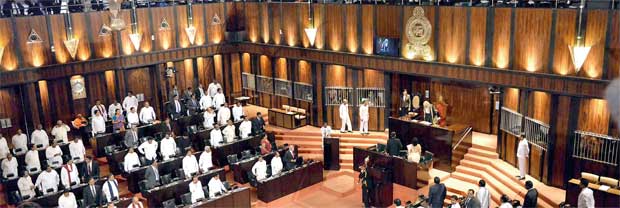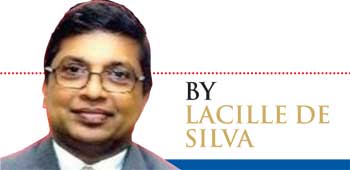Reply To:
Name - Reply Comment
Last Updated : 2024-04-26 14:18:00
 t the time of independence in 1948, Ceylon (British Colonial name until 1971), was one of the most prosperous countries in the Commonwealth. During that period, we had a well developed infrastructure, and an independent, cost effective, efficient public administration network and judiciary, and a democratic Westminster-type political system. It must also be mentioned that around the first decade of the 20th century, there were a little more than 200 British officials satisfactorily governing a population of around 3 million. In addition, there were significant achievements in health, education and other sectors together with a prospering plantation economy, with the only drawback being extremely poor industrialization schemes. The Sri Lankan rupee value had been so strong then, it stood at Rs. 1.50 against the British pound.
t the time of independence in 1948, Ceylon (British Colonial name until 1971), was one of the most prosperous countries in the Commonwealth. During that period, we had a well developed infrastructure, and an independent, cost effective, efficient public administration network and judiciary, and a democratic Westminster-type political system. It must also be mentioned that around the first decade of the 20th century, there were a little more than 200 British officials satisfactorily governing a population of around 3 million. In addition, there were significant achievements in health, education and other sectors together with a prospering plantation economy, with the only drawback being extremely poor industrialization schemes. The Sri Lankan rupee value had been so strong then, it stood at Rs. 1.50 against the British pound.
 numerous Boards and Corporations. The Supreme Court, however, years later had ruled privatization was a farce and a total failure. It had been accordingly revealed that the government had lost billions and billions through these corrupt deals.
numerous Boards and Corporations. The Supreme Court, however, years later had ruled privatization was a farce and a total failure. It had been accordingly revealed that the government had lost billions and billions through these corrupt deals.syed Tuesday, 05 May 2015 12:37 PM
excellent article giving history and ills of governance but, this is a big but, we like to hear from u about workable and practical solutions that could see the light of day

Add comment
Comments will be edited (grammar, spelling and slang) and authorized at the discretion of Daily Mirror online. The website also has the right not to publish selected comments.
Reply To:
Name - Reply Comment
US authorities are currently reviewing the manifest of every cargo aboard MV
On March 26, a couple arriving from Thailand was arrested with 88 live animal
According to villagers from Naula-Moragolla out of 105 families 80 can afford
Is the situation in Sri Lanka so grim that locals harbour hope that they coul